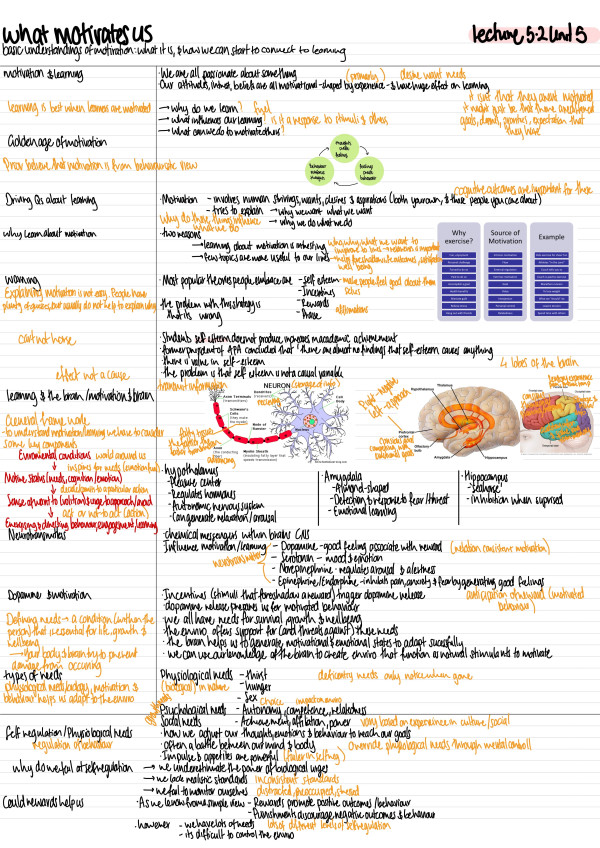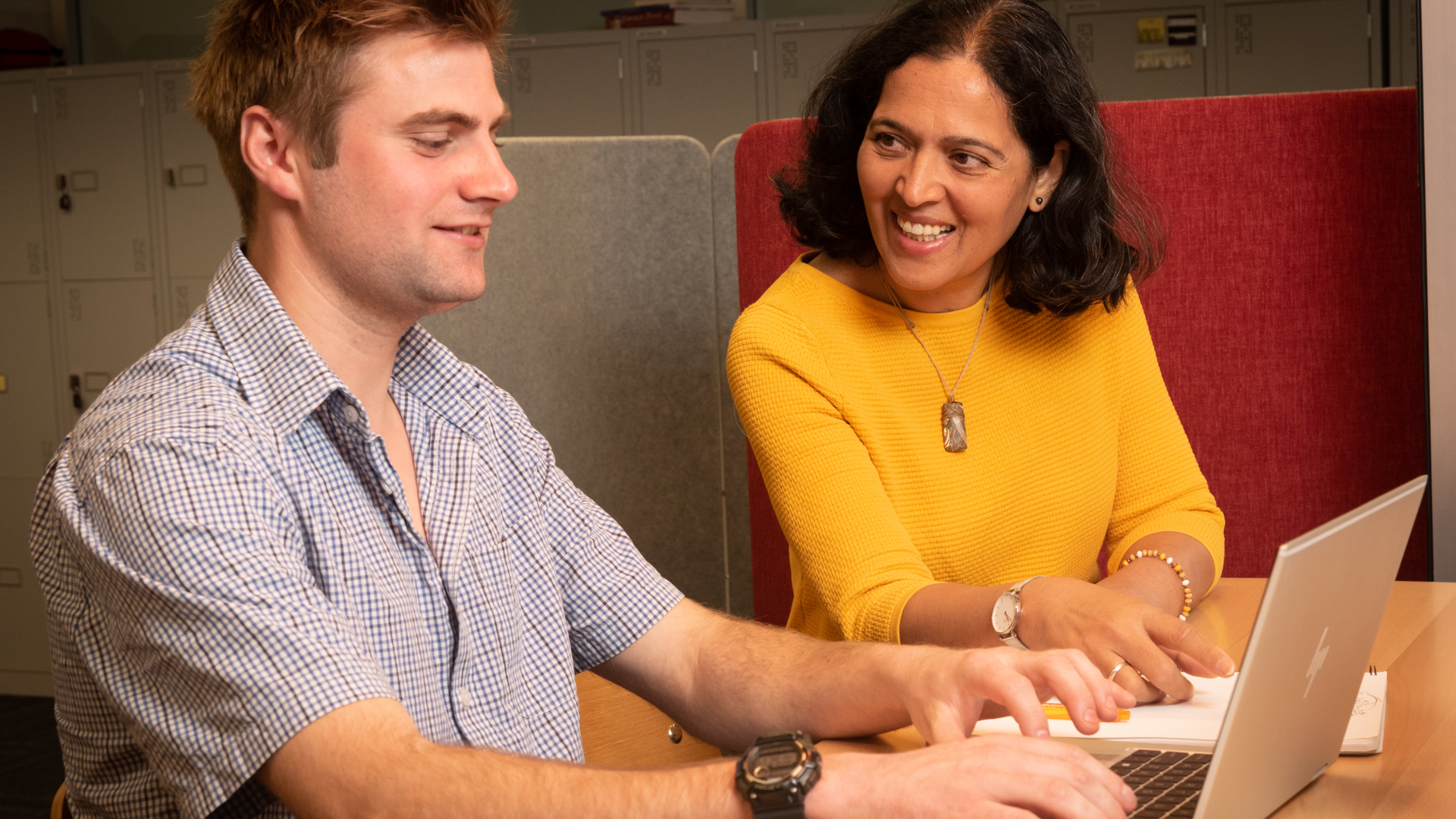Note taking
Learn how to take notes that help you understand and retain information

Note taking could be completely new to you, or a skill you would like to improve on. Here you can learn about the note taking process, what good notes typically include and can check out five common note taking systems.
There are many benefits to making good notes. Effective note taking develops skills in ordering information, rephrasing information, summarising information and thinking critically about information, to name a few. This ultimately leads to understanding course content more quickly than before. Good note taking skills will make your life much easier.
Hear about note taking from some recent Lincoln University students
Hear about note taking from some recent Lincoln University students
The three stage learning process
It’s not just about taking notes in class. Making good notes is a three stage process.
Have a look at the notes below made by Kelly-Anne Bentley, a successful science student at LU. Her system of notetaking is as follows:
- Before the lecture: Kelly-Anne uses the slides to write an outline (in black pen) of the lecture’s main headings and key details. She also pastes key lecture images into that outline.
- During the lecture: Kelly-Anne makes further notes (in orange pen) adding to what she has already outlined. She can include examples and extra information because the basic outline is already there.
- After the lecture: Kelly-Anne reviews and fills out her notes even more, seeking answers to any questions she is unsure of.
 Kelly-Anne's study style is effective and is one example of using this three part process:
Kelly-Anne's study style is effective and is one example of using this three part process:
Before your class, complete the preparation work including doing any assigned reading (check the course outline or Akoraka | Learn page), watching videos, completing online activities and reading through the lecture slides. This means skimming, noticing key concept definitions, topic headings/subheadings, diagrams etc. and maybe creating 'pre-lecture' notes with these as Kelly-Anne does. This will give you an overview of the class beforehand, helping you engage with the material and get more out of the class.
In the class, use a note taking system that engages you actively with the content you are learning about. If you’re in a lecture, don’t forget to look up at the lecturer and take notice of cues, body language and points emphasised. Having an idea beforehand of what the lecture will cover means you will be able to do this. Remember to participate fully in class discussions and make notes on important points from these too.
If you are taking notes from a lecture recording, don’t go faster than 1.5 speed and pause the recording as you take your notes so you don’t miss anything. Taking notes while watching videos makes you an active learner and means you get more out of recorded material than if you simply watch it.
After the class, review and expand out your notes while they are fresh in your mind. This includes referring to other resources on Akoraka | Learn that are relevant to the content of the class such as weekly readings. These resources help answer questions you had in the class and extend your learning. The notes you take from other learning material expand and add to the notes you took in class. You may want to watch the class recording too. Some students like to reprocess their notes into a different format, such as a mind-map or a summary sheet. Doing something like this with the information, or discussing it with friends, will help you retain the information and understand it better.
How should I take notes?
Laptop, pen and paper, tablet with stylus - which is best?
There are pros and cons to all modes of note taking. Experiment and find what is best for you.
Things to consider around different modes of note taking:
Laptop:
- Typing is faster than handwriting so if you are typing notes, you will be able to get more information taken as notes. The downside of this is that people can focus on typing in every word rather than on understanding the concept or key idea the lecturer is talking about. They don’t think about the meaning behind what is being said and often miss the big picture. If you are typing notes, try to summarise and paraphrase as you type. This forces your brain to think about what is important and to process/understand the information more than just typing in every word
- Having a digital record makes your notes easier to edit/correct, to search through later, and backed up
- Taking notes on a device means you can have the lecture slides together with your notes from the lecture, either side by side or stored together.
Pen and paper:
- Writing with a pen is slower so forces you focus on the most important aspects of what is being said. This can help you with more conceptual learning and gaining a deeper understanding of the key concepts.
- Pen and paper use allows you to draw arrows, diagrams and mind maps
- You can miss important information especially in a fast-paced lecture
- It can be time consuming and frustrating to cross reference your paper notes with the lecture slides
- These notes are not backed up
Tablet and stylus
- For some this is the best of both worlds as you are hand writing so forced to focus on the most important aspects of the class, but digitally, so it’s easy to edit and organise your notes and search them later, and you can draw arrows, diagrams and mind maps as you go.
- A drawback is that it’s another device to buy and keep charged and the stylus is easy to lose.
Digital note taking apps:
OneNote is a popular digital lecture notetaking tool. The Microsoft suite is free for uni students.You can upload lecture slides into OneNote and write notes next to them. You can compile and organise all your notes in a single location (lectures, lecture notes, associated readings etc). There are other free online note making tools you could also try.
Whatever way you take notes:
- Remember the lecture will be recorded so if you feel you missed something don’t worry, you can find and check it later on the recording.
- Concentrate on the class, turn off all notifications to minimise distractions and don’t keep checking your phone.
Whichever mode you use remember note taking is not just typing or writing down at a furious rate, there are some principles of good note taking you should be aware of. Good note taking should cause you to:
- listen more actively to the lecturer or tutor
- order information into key points, sub-points and detail
- rephrase information into your own words/pictures/diagrams
- ask questions
- understand underlying principles
- connect theory with examples provided
- connect new information with what you already know
- summarise the learning from the lecture
- take hints from the lecturer about what to pay attention to
- have a useful record for studying later
What note taking system should I try?
Outline Method
Cornell Method
Mind Map Method
Flow Method
Write on the Slides Method
What note taking system should I try?
Outline Method
Cornell Method
Mind Map Method
Flow Method
Write on the Slides Method
Reading and exams
- In addition to what you have learnt about taking notes here, learning how to read more critically and think more critically will improve the quality of comments you are noting down.
- Click here for advice about making study notes for tests and exams.
Get Individual Advice
Talk to Academic Success or attend one of our workshops for help with your study.


